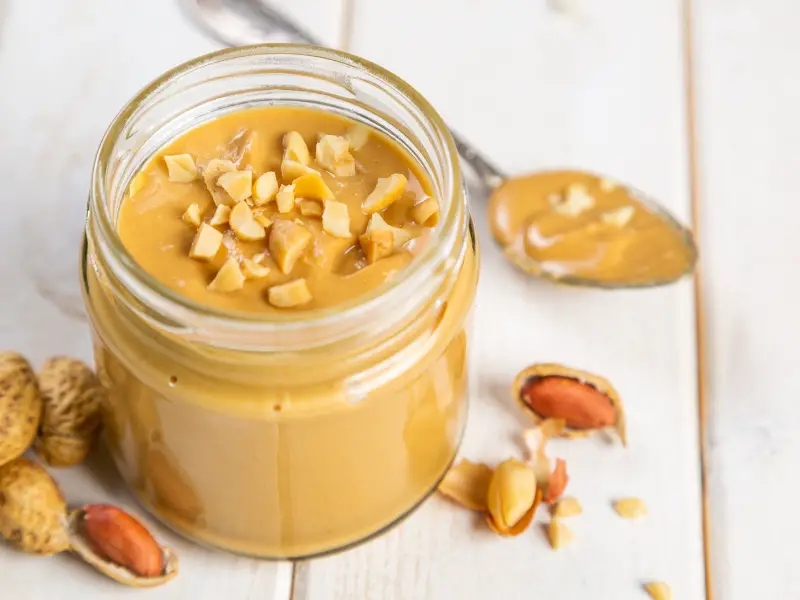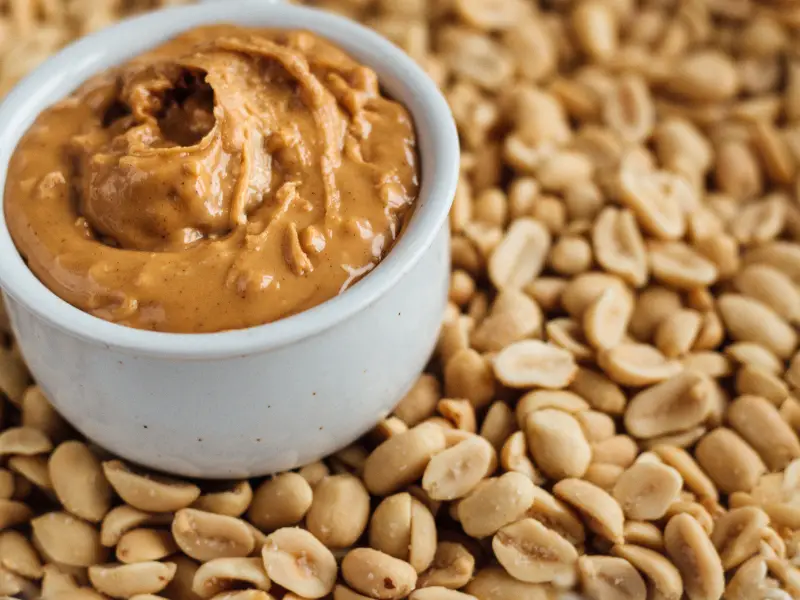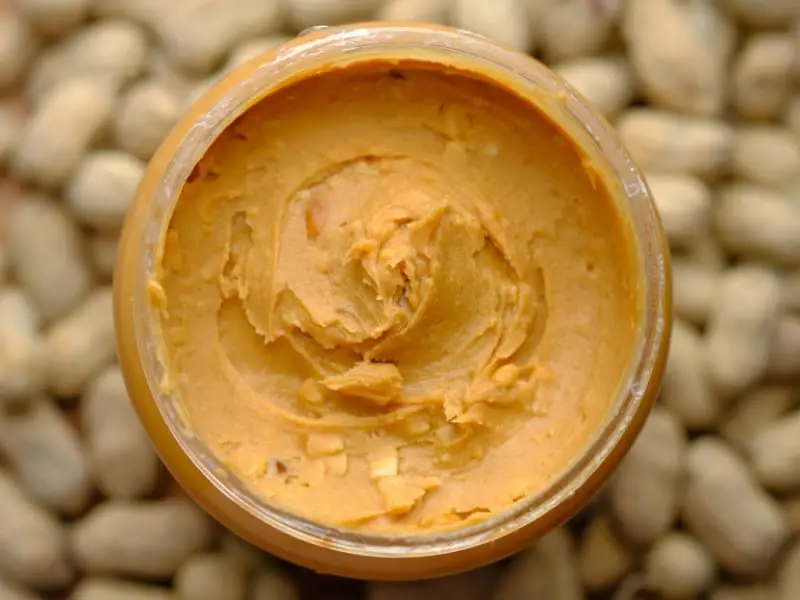Rabbits are adorable and beloved pets that require a specific diet to stay healthy. As owners, it is essential to provide them with a balanced diet that includes hay, fresh vegetables, and fruits. However, when it comes to treats, many pet owners wonder if rabbits can eat peanut butter.
Peanut butter is a popular snack among humans, and it is often used as a treat for dogs. However, rabbits have different dietary needs, and not all human foods are safe for them to eat. Peanut butter is high in fat and protein, which can cause digestive problems for rabbits. Therefore, it is essential to know whether it is safe to feed them peanut butter or not.
In this article, we will explore whether rabbits can eat peanut butter and its potential risks and benefits. We will also provide alternative treats that are safe and healthy for rabbits. By the end of this article, you will have a better understanding of what to feed your furry friends and how to keep them healthy and happy.
Are Peanuts Toxic to Rabbits?
Rabbits are herbivores and require a diet that is high in fiber, low in fat, and rich in vitamins and minerals. While rabbits can eat a variety of fruits and vegetables, it is important to be cautious about what they eat, as some foods can be toxic to them.
One food that is often questioned is peanuts. Peanuts are a legume and are not recommended as a regular part of a rabbit’s diet. However, they are not toxic to rabbits in small amounts.
Peanuts contain a high amount of fat, which can cause digestive problems for rabbits. Additionally, peanuts are often coated in salt or other seasonings, which can be harmful to rabbits.
If a rabbit accidentally ingests a small amount of peanuts, it is unlikely to cause any harm. However, if a rabbit eats a large amount of peanuts or peanut butter, it can lead to health problems such as obesity, diarrhea, and dehydration.
In summary, while peanuts are not toxic to rabbits, they should not be a regular part of their diet. It is important to provide rabbits with a diet that is high in fiber, low in fat, and rich in vitamins and minerals to keep them healthy and happy.
Why is Peanut Butter Bad for Rabbits?

Peanut butter is a popular spread that many people enjoy. However, it is not suitable for rabbits. Here are some reasons why peanut butter is bad for rabbits:
High in Fat
Peanut butter is high in fat and calories, which can lead to obesity in rabbits. Obesity in rabbits can cause a range of health problems, including heart disease, liver disease, and arthritis.
Low in Fiber
Rabbits need a diet that is high in fiber to maintain good digestive health. Peanut butter is low in fiber, which can lead to digestive problems in rabbits. These problems can include constipation, diarrhea, and bloating.
High in Salt and Sugar
Peanut butter is often high in salt and sugar, which can be harmful to rabbits. Too much salt can cause dehydration, while too much sugar can lead to dental problems and obesity.
Contains Xylitol
Some peanut butter brands contain xylitol, a sugar substitute that is toxic to rabbits. Xylitol can cause a rapid release of insulin, leading to hypoglycemia, seizures, and even death.
In conclusion, peanut butter is not a suitable food for rabbits. It is high in fat, low in fiber, high in salt and sugar, and may contain xylitol, which is toxic to rabbits. It is important to feed rabbits a diet that is high in fiber, low in fat, and free from harmful substances.
Risks of Feeding Peanut Butter to Rabbits

Feeding peanut butter to rabbits may seem like a harmless treat, but it can actually pose several risks to their health. Here are some potential risks to consider before giving your rabbit peanut butter:
High-Fat Content
Peanut butter is high in fat, which can lead to obesity in rabbits if given in excessive amounts. Obesity can cause a range of health problems, including heart disease, liver disease, and arthritis.
Digestive Issues
Rabbits have sensitive digestive systems, and feeding them foods that are high in fat or sugar can cause digestive issues such as diarrhea and bloating. Peanut butter also contains a substance called aflatoxin, which can be harmful to rabbits if consumed in large quantities.
Allergic Reactions
Some rabbits may be allergic to peanuts or other ingredients in peanut butter. Signs of an allergic reaction may include itching, swelling, and difficulty breathing. If your rabbit shows any of these symptoms after eating peanut butter, seek veterinary attention immediately.
Choking Hazard
Peanut butter can also pose a choking hazard for rabbits, especially if it is given in large chunks or if the rabbit tries to eat it too quickly. This can lead to serious respiratory problems or even death.
Overall, it is best to avoid feeding peanut butter to rabbits. Instead, offer them a variety of fresh vegetables and hay as a healthy and nutritious diet. If you are unsure about what foods are safe for your rabbit, consult with your veterinarian for advice.
What to do if your rabbit ate peanut butter?
If your rabbit accidentally ate a small amount of peanut butter, it is unlikely to cause any harm. However, if your rabbit has consumed a large amount of peanut butter, you should contact your veterinarian immediately.
Here are some steps you can take if your rabbit has eaten peanut butter:
- Monitor your rabbit’s behavior: Watch your rabbit for any signs of discomfort or digestive issues, such as diarrhea, vomiting, or lack of appetite. If you notice any of these symptoms, contact your veterinarian.
- Offer water: Offer your rabbit plenty of fresh water to help flush out any toxins.
- Do not induce vomiting: Do not try to induce vomiting in your rabbit unless instructed to do so by your veterinarian.
- Avoid giving any more peanut butter: Do not offer your rabbit any more peanut butter or any other human foods that are not part of their regular diet.
- Follow your veterinarian’s advice: If your rabbit is experiencing any symptoms or discomfort, follow your veterinarian’s advice and treatment plan.
Remember, prevention is always better than cure. To avoid any potential health risks, it is best to stick to your rabbit’s regular diet and avoid offering any human foods unless recommended by your veterinarian.
Other Food Alternatives for Peanut Butter
Rabbits can eat a variety of foods, so there are plenty of alternatives to peanut butter. Here are a few options to consider:
Fresh Vegetables
Fresh vegetables are a great addition to a rabbit’s diet. They provide essential nutrients and fiber. Some of the best vegetables for rabbits include:
- Carrots
- Broccoli
- Kale
- Parsley
- Cilantro
- Dandelion greens
- Romaine lettuce
- Spinach
It’s important to introduce new vegetables slowly to prevent digestive upset. Start with small amounts and gradually increase the portion size.
Fresh Fruits
Fresh fruits are another great option for rabbits. They provide vitamins and minerals but should be given in moderation due to their high sugar content. Some of the best fruits for rabbits include:
- Apples
- Bananas
- Blueberries
- Strawberries
- Pineapple
- Mango
Again, it’s important to introduce new fruits slowly and in small amounts.
Pellets
Pellets are a staple in most rabbit diets. They provide essential nutrients and fiber. Look for high-quality pellets that are specifically formulated for rabbits.
Hay
Hay is an essential part of a rabbit’s diet. It provides fiber and helps keep their digestive system healthy. Timothy hay is a popular choice for rabbits, but other types of hay, such as orchard grass and oat hay, can also be fed.
Treats
Treats should be given sparingly but can be a fun addition to a rabbit’s diet. Some good options include:
- Small pieces of dried fruit
- Timothy hay cubes
- Small pieces of fresh vegetables
It’s important to avoid giving your rabbit treats that are high in sugar or fat, as they can lead to health problems.
Conclusion
In conclusion, while peanut butter is not toxic to rabbits, it should not be a regular part of their diet. Rabbits are herbivores and thrive on a diet that is high in fiber and low in fat and sugar. Peanut butter is high in fat and should only be given to rabbits in small amounts as a treat.
It is important to note that some rabbits may be allergic to peanuts, so it is important to introduce peanut butter slowly and monitor your rabbit for any adverse reactions. Signs of an allergic reaction may include diarrhea, vomiting, or difficulty breathing.
If you do choose to give your rabbit peanut butter, it is best to opt for all-natural, unsweetened varieties that do not contain any added salt or sugar. Additionally, it is important to avoid giving your rabbit peanut butter that contains xylitol, a sugar substitute that is toxic to rabbits and other animals.
Overall, while peanut butter may be a tasty treat for rabbits in moderation, it should not be a staple in their diet. A balanced diet of hay, fresh vegetables, and a small amount of pellets is the best way to ensure that your rabbit stays healthy and happy.
Related Articles:

